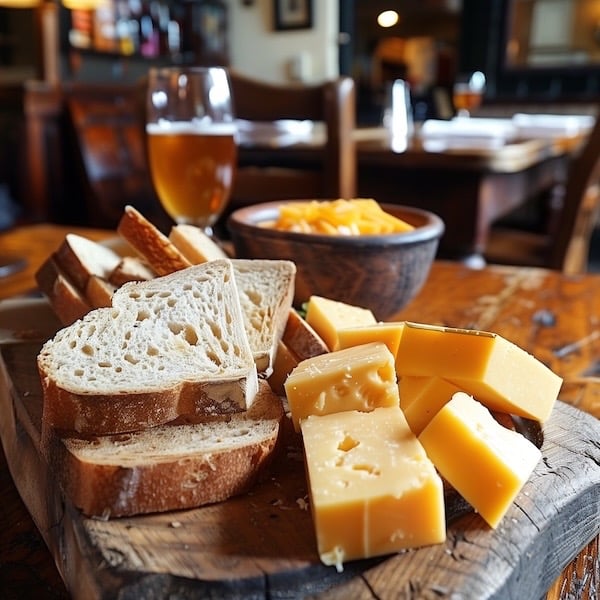Early Mornings and Hard Truths
My Brief Stint as a Milkman
PERSONAL REFLECTIONS

Early Mornings and Hard Truths: My Brief Stint as a Milkman
One of my earliest jobs, when I was just 18 or 19, was as a milkman. Humbling, isn't it? But I needed the work and the money. I started the job in the depths of winter, not the best time for such work, given the bitter English cold. The vehicle I had was an electric milk float, running on rechargeable lead-acid batteries. At the end of each shift, it was each driver’s responsibility to plug the batteries in, ensuring they would recharge overnight, ready for the next morning's shift. The supervisor who trained me came along for the first few days to show me the ropes. It didn’t take long for me to get the hang of things.
Starting early in the morning meant it was pitch black, and the winter days were often wet and freezing cold. Each customer received their normal order, left on their front doorstep—one bottle, two bottles, three bottles, whatever they needed. There were two types of milk: silver top for normal milk and gold top for the creamier variety. The gold top, more yellow than white, came from Jersey or Guernsey cows and was rich and delicious. I loved it so much that anytime I took a break, I'd drink some of that milk. There were other dairy products such as cream, yoghurts, butter, which we milkmen were encouraged to sell and which added commission to the base salary when sold.
The workload was substantial, with many houses to visit. It was quite hard work. At each house, I had to check my order sheet or remember their usual order, take the milk from the back of the float, place it in a small hand basket, run to the front door, and then run back with the empty bottles. This was fine until someone left a note in the bottle asking for an extra bottle or a carton of cream. That was annoying because it meant running back and forth and updating the order sheet, making the job tedious and far from satisfying. And trying to write alterations on the order sheet in the biting cold with frozen fingers was a challenge.
One particularly cold, icy morning, it was so dark and I was running around as fast as I could to keep warm. I sprinted up to the front door of one house, across the lawn as usual, with a full crate of milk in hand. For some reason, they had strung a line across the lawn near the front door, which I didn’t see. I tripped over it, went headfirst onto the porch, and the milk went flying. Bottles smashed against the door, milk splattered everywhere, and I lay there in a heap among the broken glass. The resident, woken by the commotion, turned on the light and came to the door. Luckily, I wasn't hurt. They got a brush for me to sweep the glass aside and assured me they’d hose off the milk. I had to go back to the float for for more bottles to replace the spilt milk.


My route was mostly uphill on the way out from the depot, making the milk float labour a bit, but the final stretch was downhill, which made the return to the depot easier. One day, the float wouldn’t move up the final hill because the batteries hadn't been charged. Someone had unplugged it from the wall overnight, and I knew it wasn’t me because plugging it in had become a habit. The float stopped halfway up the hill, so I found a brick, placed it on the accelerator, got out, and pushed it from the steering wheel opening (the float had no doors). Once it crested the hill, I hopped back in and let gravity take me the rest of the way. I just made it back to the depot with the batteries completely flat. The supervisor blamed me for not plugging it in, but I knew who had really done it. It was a deliberate act to sabotage me.
There were some bright moments. Part of my route passed through a village with a charming English pub. On some days, around lunchtime, I'd stop for a Ploughman’s lunch—a big piece of crusty bread, a lump of cheddar cheese—and warm myself by the fire before heading back to the depot, and shift's end. It was a welcome reprieve. Another time, I delivered to a large manor house on an estate. As I placed the milk on the step, the large oak door opened, and a very attractive woman, apparently the lady of the house, asked if I could help her with a locked bedroom door. Naively, I suggested she call a locksmith from the next village, completely missing the obvious opportunity. How stupid was I?
Starting the job in winter, just three to four weeks before Christmas, was the best time for a milkman. Customers would leave Christmas 'bonuses' on the doorstep, usually money, which made up for the hardships of the job. However, two days before Christmas, I was called into the management office and accused of stealing. My supervisor claimed that the money I turned in didn’t match the milk, cream, and yoghurts sold. It was an outright lie. He had taken the money and accused me so he could take over my round during Christmas and collect all the tips. It was a harsh lesson for a naive young boy, a rude awakening to the realities of the workforce. His betrayal stung, not only because it cost me my job but because it robbed me of the Christmas tips that were rightfully mine.
Did karma ever catch up with that supervisor? I'd like to think so. People who operate with such dishonesty and malice rarely escape the consequences of their actions. The universe has a way of balancing the scales, and I hope he eventually faced the repercussions of his deceit. Whether through the natural course of justice or through the erosion of his integrity and reputation, it’s likely that his actions caught up with him.
As for me, I moved on. The experience, though harsh, taught me valuable lessons about trust, hard work, and resilience. It was a tough introduction to the realities of the working world, but it also shaped my understanding of what I wanted—and didn't want—in a career. The bitter memories of those cold, dark mornings and the injustice I faced are tempered by the knowledge that I emerged stronger and wiser.
© Peter Pickering 2024. www.peterpickering.com




